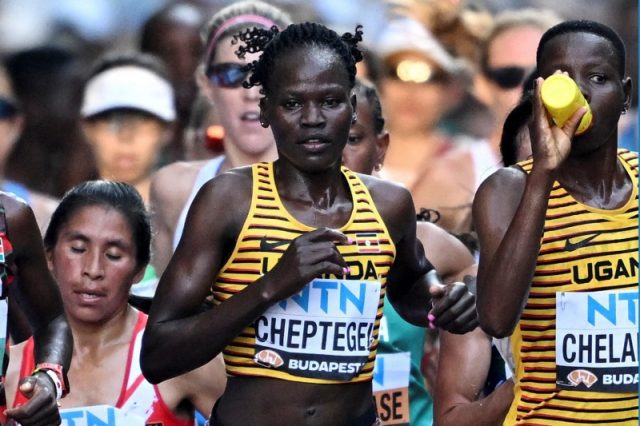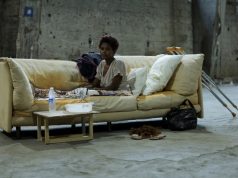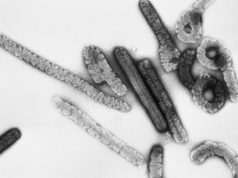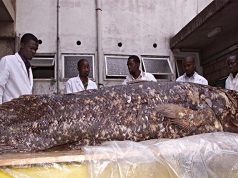
- Cheptegei suffered burns to over 75% of her body
- Kenyan authorities investigate circumstances of her death
- Violence against sportswomen in Kenya in the spotlight
- Media reports say runner and boyfriend had dispute over land
ELDORET, Kenya — Ugandan Olympic marathon runner Rebecca Cheptegei died on Thursday, four days after she was doused in petrol and set on fire by her boyfriend in Kenya, in the latest attack on a female athlete in the country.
Cheptegei, 33, who competed in the Paris Olympics, suffered burns to more than 75% of her body in Sunday’s attack, Kenyan and Ugandan media reported.
She is the third prominent sportswoman to be killed in Kenya since October 2021.
“We have learnt of the sad passing on of our Olympic athlete Rebecca Cheptegei… following a vicious attack by her boyfriend,” Donald Rukare, president of Uganda Olympics Committee, said in a post on X.
“May her gentle soul rest in peace and we strongly condemn violence against women,” he said.
The runner, who finished 44th in Paris, was admitted to a hospital in the Kenyan Rift Valley city of Eldoret after the attack.
It was not immediately clear whether her attacker was her current or former partner.
Cheptegei “passed today morning at 5:30 am after her organs failed,” Owen Menach, senior director of clinical services at Moi Teaching and Referral Hospital, told Reuters, adding that a full report regarding the circumstances of her death would be released on Thursday afternoon.
Kenyan newspaper The Standard said her attacker also sustained injuries in the incident and was admitted to the intensive care unit with 30% burns, citing doctors at the same hospital.
Gender-based violence
Kenyan Sports Minister Kipchumba Murkomen described Cheptegei’s death as a loss “to the entire region”.
“This tragedy is a stark reminder that we must do more to combat gender-based violence in our society, which in recent years has reared its ugly head in elite sporting circles,” he said in a statement.
Uganda’s athletics federation called for justice, while Jackson Tuwei, the president of the governing body Athletics Kenya, said Cheptegei was “a huge loss to the world of athletics”.
World Athletics President Sebastian Coe also paid tribute, hailing Cheptegei as “an incredibly versatile runner who still had lots left to give on the roads, mountains and cross country trails.”
The athlete’s father, Joseph Cheptegei, told reporters that he was asking the government to protect her children and properties “so that no one will get into her home and take anything.”
“The land… has brought problems,” he said, following local media reports that the mother of two and her boyfriend had been fighting over property in the days leading up to the attack.
Peter Ogwang, Uganda’s minister of state for sports, said Kenyan authorities were investigating the killing, which has shone a light on violence experienced by women in the East African nation.
Nearly 34% of Kenyan girls and women aged 15-49 years have suffered physical violence, according to government data from 2022, with married women at particular risk.
The 2022 survey found that 41% of married women had faced violence.
A report by UN Women and the UN Office on Drugs and Crime said that in 2022, African countries collectively recorded the largest number of killings of women, both in absolute terms and relative to the size of the continent’s female population.
In October 2021, Olympian runner Agnes Tirop, a rising star in Kenya’s highly competitive athletics scene, was found dead in her home in the town of Iten, with multiple stab wounds to the neck.
Ibrahim Rotich, her husband, was charged with her murder and has pleaded not guilty. The case is ongoing.
The 25-year-old’s killing shocked Kenya, with current and former athletes setting up ‘Tirop’s Angels’ in 2022 to combat domestic violence.
Joan Chelimo, one of the group’s founders, told Reuters female athletes were at high risk of exploitation and violence at the hands of men drawn to their money.
“They get into these traps of predators who pose in their lives as lovers,” she said.
—Reporting by George Obulutsa, Humphrey Malalo, Sonia Rao in Nairobi, John Wamanya in Eldoret and Elias Biryabarema in Kampala; Writing by Ammu Kannampilly; Editing by Hereward Holland, Gareth Jones, Toby Chopra and Christina Fincher









